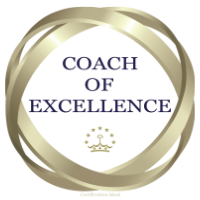 This article was kindly provided to us by Choice – The coaching magazine. Choice is a community for people who use coaching in their work or personal lives.
This article was kindly provided to us by Choice – The coaching magazine. Choice is a community for people who use coaching in their work or personal lives.
They’ve been building a strong, passionate following in the coaching industry for more than a decade. Click the image to find out more or visit their website by clicking here.
When coaching clients of different ages, understanding their stage of development will improve your ability to connect more deeply with your clients and allow them to grasp better what is going on within themselves, thus increasing your coaching effectiveness.
The family life cycle is a term used in psychology to describe the different phases a family goes through in a lifetime. Keeping in mind where your clients are in their family life cycle (or where they would like to be) builds trust, forges alignment and makes your clients feel like you hit the bull’s-eye in understanding them. It allows you to help clients overcome universal obstacles, while supporting them to reach their milestones and preparing them for what’s to come next in their family life cycle.
There are many different models of a family life cycle; the one I am going to take you through is a typical American family life cycle that we can use as a guideline. However, it is important to keep in mind that not everyone may fit into this framework; you must make the appropriate adjustments based on who your client is (family and cultural background).
For example, if a female client comes from a divorced family and got pregnant unexpectedly, the needs will be different than a client whose parents are still together, but she is not getting pregnant when she would like to. This article provides some ideas on how to work with different phases of life and some typical issues that arise at different developmental ages your clients are experiencing.
To follow are the stages of the family life cycle and the overall goal for each stage. Below the goal are the typical milestones – what needs to be accomplished in order to successfully transition through that stage of life. Some milestones may not be able to be met depending on the circumstances.
For example, if a client’s parents have passed away or do not have the capacity to show up, she may need to come to terms with those things that are out of her control. You can help your clients figure out what is and is not within their control and support them so that the latter doesn’t interfere with where they would like to go! Following are the typical stages in the family life cycle, along with goals and milestones for each stage.
Keeping in mind where your clients are in their family life cycle builds trust, forges alignment, and makes your clients feel like you hit the bull’s-eye in understanding them.
Leaving Home
Goals:
- Successfully transition into independence.
- Move towards being self-sufficient
- Explore and choose career options.
- Discover who you are and would like to be as an adult.
Milestones:
- Differentiation of self from family of origin – experiment and find out who you are as you are learning t live on your own.
- Develop an adult-adult relationship with your parents – stay connected, learn to work out differences and relate in a more mature way.
- Develop deeper peer relationships – expand social connections, create an inner circle of support and start to develop deeper intimate relationships.
- Determine possible career interests, develop work identity and financial independence – discover what t study in college, what kind of lifestyle fits with you values and how you are going to make that happen.
Pre-marriage
Goals:
- Have a successful intimate long-term relationship.
- Practice what more commitment feels like (maybe living together or not) and figure out if you’d like to move forward.
Milestones:
- Let someone else in your life, heart and home.
- Adjust to issues of living with a significant other: dealing with each other’s habits, having consideration for another, who is doing what chores, sex life, etc.
- Develop effective communication skills.
- Stay connected to your core self.
Childless Couple
Goals:
- Establish a stable foundation (relationship, finances etc.) upon which to build a life together and/or raise a family.
- Create a definition of what family means to you
Milestones:
- Decide if you want to get married or just live together.
- Set short-term, medium-term, and long-term financial goals as a couple and decide on a system of dealing with money that works for both of you.
- Discover what feels right regarding your future plans regarding careers, hobbies, interests, etc.
- Decide if/when you would like to have children.
Family with Young Children
Goals:
- Have functioning children thriving towards their developmental milestones.
- Be financially secure enough to meet the family’s needs.
Milestones:
- Become educated and provide good parenting to your children.
- Stay connected to significant other.
- Utilize support systems.
- Succeed in career, get promoted.
Family with Adolescents
Goals:
- Prepare your young adults to have a successful launch into their independence.
- Prepare yourself and your partner (if applicable) to become empty nesters.
Milestones:
- Deal with the growing pains of your children growing up and becoming more independent.
- Use an authoritative parenting approach while providing guidance and nurturance.
- Connect more with your spouse so as to prepare for being together in the empty nest.
- Stay present during this time with your children and significant other.
Launching Children
Goals:
- Successfully transition into your empty nest.
- Enjoy your next chapter of life.
Milestones:
- Resolve any midlife issues.
- Negotiate an adult-to-adult relationship with your children.
- Adjust to living as a couple or a single person.
- Manage aging parents, declining health, and loss.
- Dealing with the unexpected (e.g. daughter getting pregnant, young adult develops mental illness or substance abuse, adult children move back home to live for a period of time).
Later Family Life
Goals:
- Feel you’ve lived a complete and fulfilled life
- Reap the rewards of your efforts.
Milestones:
- Adjust to extended family, including in-laws and grandchildren.
- Resolve any issues with siblings, parents, children or others.
- Stay connected to your community of support, friends and family.
- Deal with health issues, illness, loss of friends and loved ones who have passed away.
No matter where your clients fall in the family life cycle, there are milestones they are striving to achieve
Let’s say you are working with a client who complains that her son in college doesn’t call her. You say, “Young adults at this stage of life are often trying to differentiate themselves from their parents. How do you see that showing up in your son?” Or, a client describes feeling at loose ends now that his last child has left home. You ask him, “What milestones have you set for yourself now that you’re not busy caring for your children?”
These are just a few of the ways you can weave the family life cycle into working with clients, deepening your work together by helping them understand where they are in their life and how their stage of life – and that of others close to them – impacts their relationships, feelings, and interactions.
No matter where your clients fall in the family life cycle, there are milestones they are striving to achieve in order to master their overall goal. Being aware of obstacles, educating your clients about them and supporting them to move in the direction they would like to go within their family life will make them more successful in the work they are doing with you.
As a coach, there is no better satisfaction than helping your clients live a fulfilled happy life at every stage.

